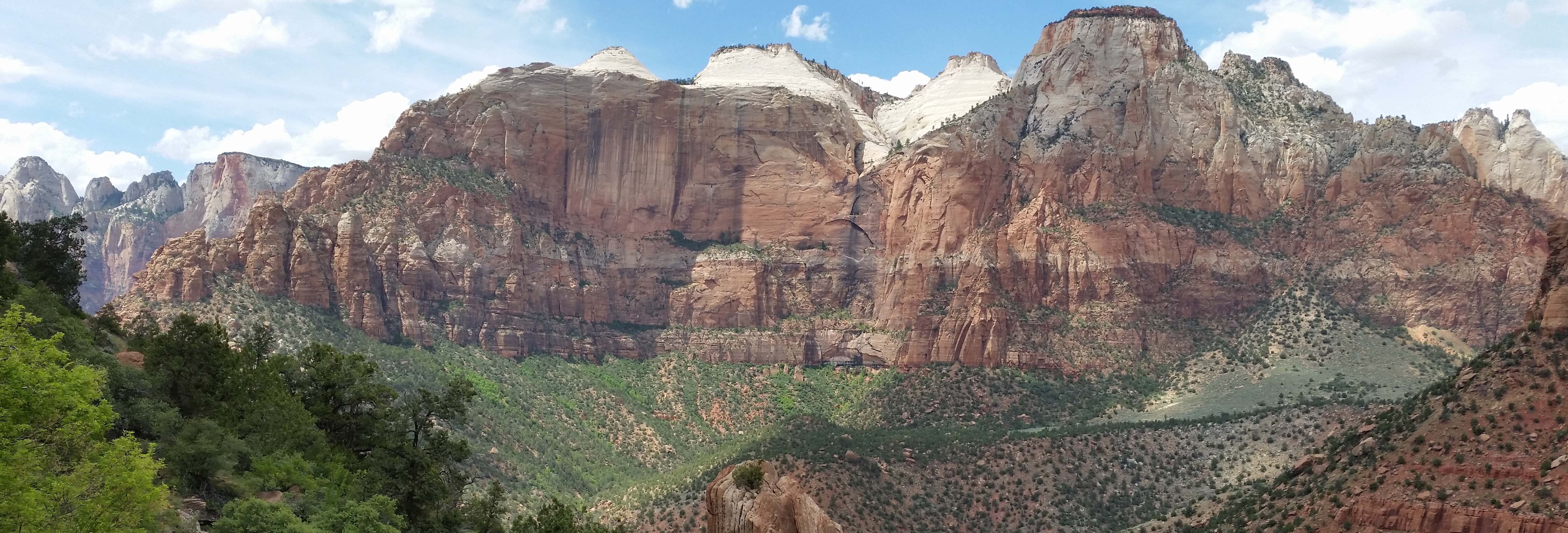Rensselaer was the first school in North America dedicated to instruction in technology and science, and earth science was one of the first topics incorporated into the school curriculum. America's earliest preeminent geologist, Amos Eaton, was one of the principal founders of RPI, and he quickly established the school's reputation in science by training a number of the early leaders in earth science research. Our modern department carries on this proud tradition, educating students at the forefront of scientific understanding.
B.S. in Geology
This curriculum leads to a B.S. in geology.
Program Outcome
Students who successfully complete this program will be able to demonstrate:
- Knowledge of science (physics, chemistry, geology, biology) and mathematics (calculus) needed to understand natural systems at a fundamental level
- In-depth knowledge in one particular field of science (i.e. geology, biology, chemistry, physics, mathematics, or computer science) that is sufficient to allow meaningful study and insight into problems affecting natural systems
- An appreciation for Earth Systems, in particular, knowledge of their interconnectedness and their natural and human-induced changes through time (Earth Systems include the oceans, atmosphere, solid Earth and sub-systems thereof)
- An appreciation for and knowledge of the societal context of science and the far-reaching impact of solid-Earth issues in society
- An awareness of potential career paths for scientifically trained individuals in the solid-Earth sector
- Scientific background knowledge needed to pursue a career in the solid-Earth sector or graduate studies in a related field.
Sample Plan of Study
First Year
Calculus I + II
Chemistry I + II
Geology I + II
Humanities or Social Science Elective (8 credits)
Second Year
Multivar. Calc. and Matrix Algebra
Physics I + II
Earth Materials
Humanities or Social Science Elective (8 credits)
Introduction to Geochemistry
Biology Requirement 1
Humanities or Social Science Elective
Third Year
Field Methods
Structural Geology
Geology Group Option
Elective (2-4 credits)
Introduction to Geophysics
Elective (4 credits)
Geology Group Option (4 credits)
Humanities or Social Science Elective (8 credits)
Fourth Year
Electives (16 credits)
Culminating Experience (3-4 credits)
Electives (10-11 credits)
Geology Group Options
- Environmental Measurements
- Igneous and Metamorphic Petrology
- Organic Geochemistry
- Aqueous Geochemistry
- Seismology
- Groundwater Hydrology
- Geographic Information Systems in the Sciences
Minors
Minor in Environmental Science
This minor is ideal for students wishing to develop a multidisciplinary background in environmental science.
Minor in Geology
Students not majoring in geology may take a minor by completing at least 16 credit hours of Earth classes, eight of which should be at the 4000 level. ERTH-1030 and 1040 (Natural Sciences) do not count towards the minor.
Minor in Hydrogeology
Students not majoring in hydrogeology may take a minor by taking ERTH-4710 , ERTH-4180, and electing from the ERTH group at least two additional courses except for ERTH-1030 and ERTH-1040.
Minor in Astrobiology
The Earth and Environmental Sciences Department participates in a multidisciplinary minor in astrobiology for students majoring in geology or other disciplines. To complete this minor, students must take a minimum of 16 credits of course work in this field. These courses include ASTR-4510 and ISCI-4500, four credits each, and two semesters of the one-credit course ISCI-4510. A further two courses outside the major field of study are also required.
Facilities
Ever since its inception, Rensselaer has been a leader in science and technology education. Today, the institute provides undergraduates with one of the most modern environments for learning. Students have access to substantial computing resources, such as an award-winning network infrastructure, 24/7 computing labs, and extensive campus-wide site licensing of popular technological software. Coursework typically integrates these computing resources, exposing students to these tools, and allowing them to use them creatively.
Earth & environmental sciences provides undergraduates with some of the most innovated classes in tertiary education. Our classes are designed to engage students in activities, and support independent thinking, taught by people researching many of the most significant topics in earth science today. Students experience this knowledge in the classroom, in teaching laboratories and field trips that accompany most classes, and in research, if they so choose (there are numerous opportunities to work on existing projects or of one's own design). Students also gain hands-on experience with the latest and most powerful research tools in earth science.
Arch
The Arch is a unique approach to education that provides flexibility in the semester schedule, allowing students to pursue professional and personal development opportunities that prepare them to meet the multifaceted challenges of the 21st century. The Arch is a requirement of the Rensselaer curriculum.
Summer Here
During The Arch, students remain on campus for the summer after their sophomore year, taking junior-level classes, and receive focused attention from professors at this pivotal point in their academic progression.
The World Away
Then, students leave the Troy campus for a semester during the traditional junior year—either fall or spring—to pursue their passions in the form of co-ops, internships, civic engagement, research, or international experiences. Students who pursue these opportunities during their academic career are better prepared for future professional careers and graduate school.
For more information regarding the Arch, please visit https://info.rpi.edu/the-arch

